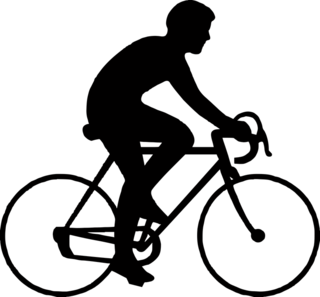Conscientiousness
Confessions of a Privileged White Guy
As I took my morning bike ride, I imagined how I would change if I were Black.
Posted August 5, 2018

This morning I read in the newspaper yet another story of an African-American who was reported to the police as “suspicious” even though the person was doing nothing even slightly wrong. In this case, it was a student at Smith College eating her lunch on campus. I then went out for a bike ride, something I do most days as part of my morning routine. As I rode, my mind drifted automatically to how I would have to behave differently if I were exactly who I am but had dark skin instead of white. I began to think of things I do routinely that I would be hesitant to do, or wouldn’t dare to do, if I were Black. Some are actual, small transgressions of the law; others are completely innocent. Here is a sample:
1. On my morning bike ride, I like to explore new places, just to see what’s there. A couple of days ago, for example, I rode into the driveway of a senior living community and took a little spin around the private roads past the well-manicured gardens and tidy homes. The entrance to this community had a sign that said clearly, “Private property: Residents and guests only." I ignored the sign, not the slightest bit worried because I assumed nobody would know that I’m not a resident or a guest and even if they did know they wouldn’t care. But today, as I went past that same entrance, I realized that, if I were Black, people would quite likely assume I don’t live there and would guess that I’m not a guest. I would look suspicious. Maybe someone would call the police and maybe I’d be charged with trespassing. Maybe I would even be treated as potentially dangerous, with the result that my life might be endangered.
2. My wife and I heat our home with wood in the winter and, to the degree possible, I collect and chop my own wood. Mostly I get wood from my own property or, with permission, from neighbors who have a fallen tree. Sometimes, however, when there are lots of fallen branches on public land near my home, I’ll cut a few of them up and carry them home. I do it in a conscientious way. I know that animals and the forest benefit from fallen logs and branches, so I only take a small percentage of those that are there, and I do it in a way that seems to me to improve the public area by clearing established walking trails and not taking wood that is off the trails. Still, it’s quite possible that what I’m doing is illegal. I’ve thought of that, but I’ve assumed that, if authorities discovered what I was doing, I could easily justify it to them and it would be no big deal. Would the same be true if I were Black? If I were Black I would not take the risk.
3. Now here’s something I’ve done that’s clearly illegal. I bought a secondhand small kayak trailer recently. In my home state, the law requires that I register it and attach a trailer license to the back. I tried doing that right after I bought it, but ran into a bureaucratic snag. The licensing procedure required information that did not seem to be available for this second-hand, partly homemade trailer. So, after considerable effort, I finally gave up trying to get the license. I don’t drive it far from home and my assumption is that I’m not likely to be stopped and that, if I am stopped, I will simply be told that I need to get a license and I will thank the officer kindly for that information. But what if I were Black? My guess is that the chance of my being stopped for hauling even this small trailer with no license would go up greatly, and if I were stopped the consequences might also go up greatly. If I were Black, I probably would not use this trailer until I could somehow work through the bureaucratic maze necessary to license it. Probably I would never use it.
4. And here’s something that is clearly innocent, but would make me very nervous were I Black: My wife and I recently bought a beautiful home on a river in a semi-rural area. So far, in my walks and bike rides in this new neighborhood, I have seen no evidence of anyone of color living here. So, suppose we had bought this house and I were Black. I spend quite a bit of time out in my yard poking around, often in my rather dirty and ragged outdoor work clothes. I suspect that, were I Black, I’d have to be very careful about what I’m doing and how I look in my own yard. Suppose, for example, I were trying to repair a window from the outdoors. Might someone driving by assume that I’m breaking in and call the police? Might the police come with guns drawn and interpret any defensive move on my part as evidence of violent intent? How awful to feel that even on my own property I would have to be on guard and continuously conscious of how I look to passersby.
These thoughts went through my mind as I rode my bike, and then I thought maybe I should share them in a post. For those who think that Black people are being oversensitive about racial profiling, I invite you to try the same thought experiment. How would your life change? In what ways would the freedoms you take for granted be inhibited? Would you find yourself boiling with anger about the injustice of it all? Even just imagining it got my blood boiling.


